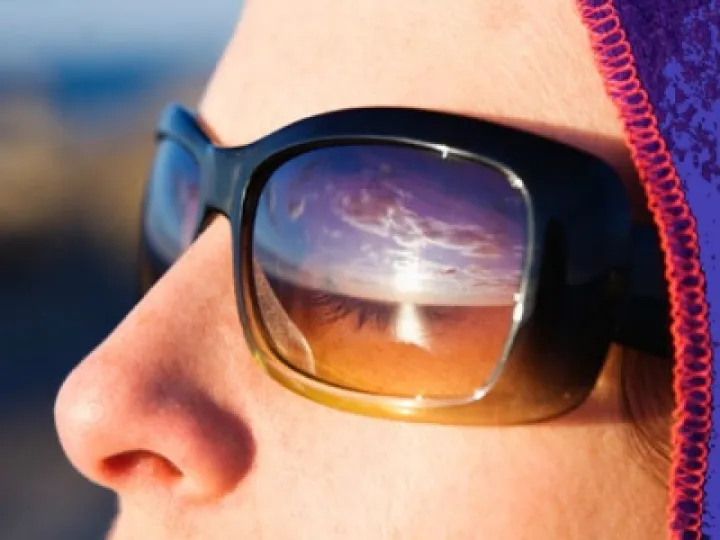How long will lens coating last?
Many types of lens coating for glasses
Lens coatings for glasses typically last for one or two years, but much depends on your lens coating and how well you take care of your spectacles or sunglasses. There are many lens coatings for glasses, and each type has various advantages.
The most common coatings are for glare reduction, blue light filtering, anti-fogging and scratch resistance. Any lens coating will increase the price of your sunglasses, so it's essential to know what you are getting for the extra outlay.
The higher the coating quality, the longer it will last, while modern developments in lens technology mean that modern coatings (not strictly coatings at all, as they can be 'baked' into the lens) can last much longer.
However long they last, lens coatings provide both clearer vision for the wearer and extend the useable life of the lens. As well as providing clearer vision, the coating can make lenses more durable and easier to clean. The main types of lens coatings for glasses and sunglasses are;
Scratch-resistant coatings
Scratch resistance and smudge repellence are vital to extending the life of lenses. They add a very thin layer of hard lacquer in their basic form, usually some form of metal oxide such as platinum. Nowadays, many plastic lenses have built-in scratch resistance on the back and front of the lens surface.
Anti-reflection coatings
Anti-reflection coatings are used on all sorts of lenses, not just for glasses. Products with this coating type include binoculars, camera lenses, visors and telescopic sights. High-tech methods seal the coating as it is applied, thus making it much more durable.
The primary benefit is reducing or eliminating reflected light, which improves transparency and contrast. Improvements in technology mean that coatings today are extremely thin and very hard-wearing. They are so thin they add no perceptible weight to the frame and are only detectable by a faint blue/greenish tinge when viewed from an angle against a white background.
The advantages of an anti-reflection coating are considerable. Standard lenses transmit only about 90% of the light to the eye; the rest is lost in surface reflections and light scattering. Reflection-free lenses transmit around 98% of the light and eliminate glare.
Anti-fog coatings
Lens surfaces can be coated with hydrophobic and hydrophilic materials that either repel moisture or absorb it. The result is lenses that don't fog up or mist easily. This results in lenses that don't need to be cleaned so often because the smooth water-repellent layer means dirt and impurities are much less likely to cling to the lens.
Blue light filters
The increased use of smartphones, tablets, and computers results in people being exposed to more blue light from LED screens. High exposure to blue light can have a detrimental effect on health. It can cause eye strain and general fatigue, and reduce the eye's sensitivity to contrast. The long-term effects of high levels of blue light on the eyes are not yet fully understood, but protecting your eyes against anything that can contribute to strain makes sense. Blue light filters can protect the eyes against heavy workplace or home exposure.
Advantages of lens coatings
Coatings enable both clearer vision and improve lens durability. Many lens offerings have benefits such as scratch resistance and smudge repellence, especially with high-end designer glasses. Coatings mainly work by making the micro-surface of the lens much smoother, so there are no 'pits' or 'hollows' for molecules of water or dirt to settle. An oleophobic layer is highly efficient at repelling dirt, making lenses more efficient and easier to clean, while an anti-static layer will repel dust to improve clarity. Whatever coating you have, the best way to make it last is to properly take care of your lenses .
Cleaning your lenses
Always clean glasses with an optical cleaning cloth. Never use your short or paper towels; these can have rough surfaces that will weaken the coating with constant use. Never clean glasses with alcohol or alcohol-based cleaners, as these can quickly strip away coatings. Leaving glasses in strong sunlight is also harmful, as heat will eventually break down the coatings. If you must leave your glasses in the car, keep them in a case or glove compartment to reduce exposure.
Read more on lenses
Fixing scratched lenses
Ray-ban lens replacement
Guide to lenses
Benefits of UV shades


